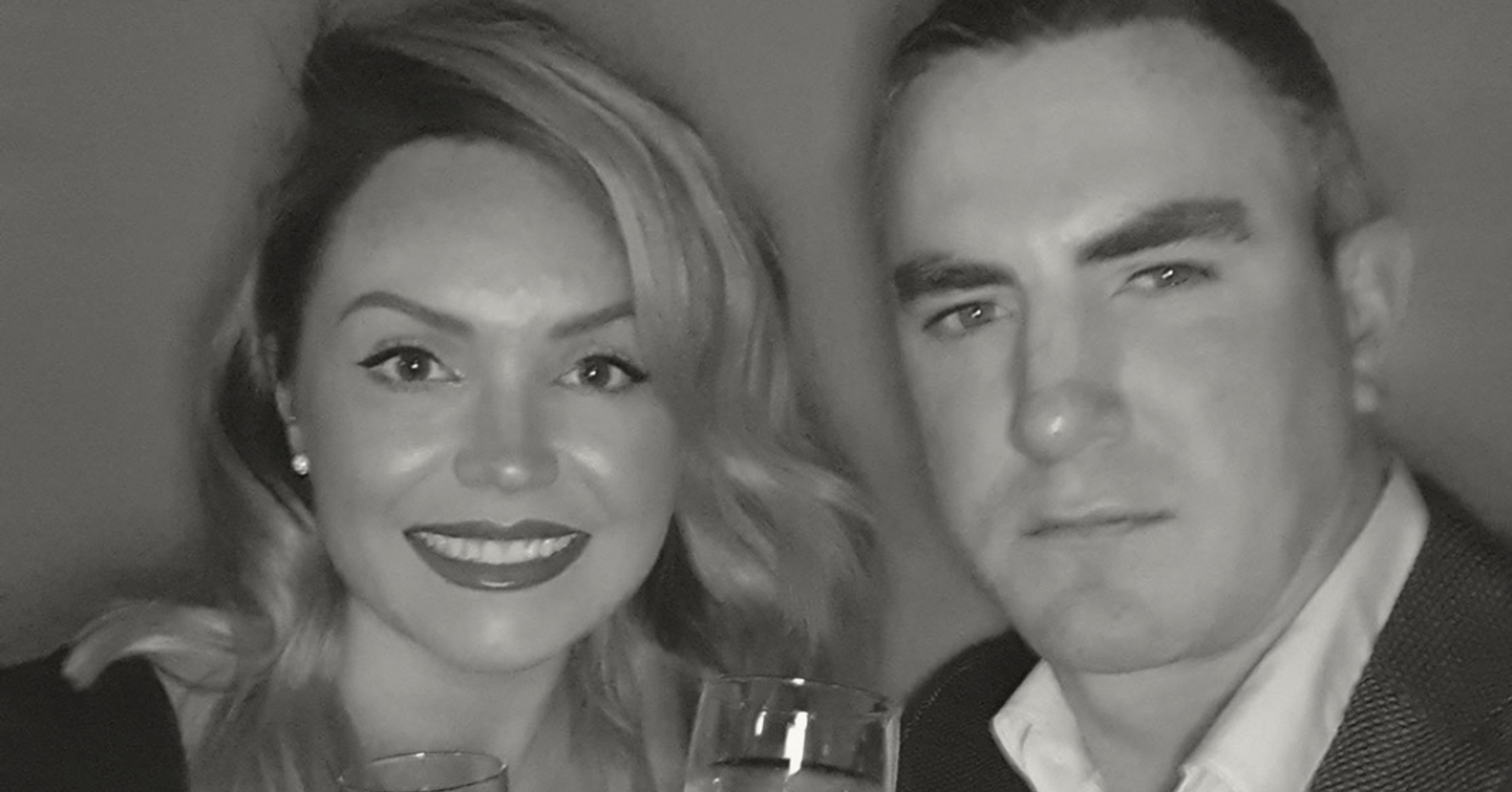Ever wondered how to really get started when it comes to creating a great aesthetics business? Or how to combine the knowledge you’ve gained in the NHS and aesthetics courses with real business tips? I spoke to super couple Alex and David Henderson, who, together have made an amazing success of their award-winning aesthetics business Ciao Bella. In this interview, they share their journey, tips and advice on becoming an aesthetics business pro.
Mixing Business with Aesthetics
Hi both! It’s lovely to meet you. I’m intrigued to know you got into aesthetics
Alex: It’s quite an original story! The first time I picked up a needle was back in 2010. I was working as a nurse at the time, and I’d just been to an aesthetic clinic with my mum and nan, who were looking to get some anti-wrinkle treatments - which was all still very taboo back then.
Between them, they would have been looking to pay an extortionate amount of money. And, coincidentally, just after that appointment, I spoke to someone who suggested I start working in aesthetics myself. This wasn’t something I’d ever considered before, but it sounded interesting and I knew I had the medical background to be able to do it. So, I spoke to my mum and nan about the idea of me training to be able to do their treatments myself, and they withdrew their treatment plans and, instead, very kindly funded my first aesthetics course - which I wouldn’t have been able to afford myself on the wage I was on at that time.
There was never any intention to turn it into a business or to treat anyone else; it was purely to be able to treat my mum and nan and save them the money they would be spending elsewhere.
They both looked really good after their anti-wrinkle treatments with me, and then other family members began wanting treatments too. The business started a few years after that and was just this cascade of pure organic growth. I was getting so much positive feedback, and it was then that it started to feel like I was making a difference. A little while later, I took some time out of aesthetics, but after I met David, I started up again and really enjoyed it.
David: Alex was working at a doctor’s surgery at the time, but it just wasn’t what she wanted to be doing and it was taking a lot out of her, so she made the decision to leave and do aesthetics full-time, and we made our side extension into a treatment room.
Alex: It felt like a big risk at the time, but it wasn’t. And because I was getting so busy, I felt like I could dedicate all my time and effort to what I was doing rather than splitting my energy between aesthetics and working full-time as a nurse.
That sounds like a great journey! So, how did the idea of the two of you working together come about?
Alex: David and I worked separately, initially, and the aesthetics business wasn’t something he got involved in straight away, as he was in a busy, stressful job. But, one day, when we were talking about my busy schedule, he suggested that I look into getting a booking system, as the business was growing so much.
He’s always been very smart with figures, and he’s got an amazing amount of common sense that allows him to maximise profits.
David: I saw Alex starting to get more and more clients, but also getting bogged down in the admin side of things. I knew that time could be used better elsewhere, so I suggested getting a booking system to make her life easier, and I also organised getting a card payment machine to make taking payments quicker and simpler.
I knew nothing about the industry at that time, but I was able to advise on the more generic business options. Then, over time, I started to absorb information about the aesthetics industry, and now I know so much.
It’s a real mind shift going from being a nurse to an entrepreneur but Alex has come such a long way, and now she’s making a great shift from business owner to manager too. We really bounce off each other and work well as a team.
That’s brilliant! It really shows that you work well together. Alex, have you enjoyed the shift from nurse to business manager?
Alex: It’s been a real process. I’ve learnt a lot about myself and have come across challenges along the way, but I’ve grown as a person. The hardest part is managing people when you haven’t had that experience before. I left the NHS as a Band 7 practitioner, but in the Primary Care section I was working in, management wasn’t an option, so I left without a firm grip of what would be required of me when it came to managing people. Managing the business itself was ok, but when you start introducing people, that can be a challenge at first.
Registering with the CQC last year was a massive turning point for me to ensure the standards of care were actually going to be met. Those steps have really helped me grow, organically.
Sounds like it’s going really well! How do you continue to progress the business while working?
Alex: It’s a case of keeping up with the latest trends and understanding what your client-base wants, and then looking into whether that type of treatment is worth doing. Follow-ups and patient feedback are also important. As most practitioners will know, if you do enough treatments, you’ll come across side effects. When I come up against a side effect, I like to reflect on how and why it might have happened. The majority of the time it will boil down to anatomy and injector skill rather than the product that’s been used, but this is really important to understand in order for you to grow.
There’s also so much free knowledge out there that will allow you to develop your personal and professional development.
I don’t involve myself in the online aesthetics community because I’ve found some areas of it to be quite judgmental, and this can be damaging to mental health. But I focus on reading and writing articles - I’ve had three research-based articles published - which I find teaches you so much about a topic. There’s so much to constantly learn in aesthetics and you’ll always come across something new - as in any role - but continuous exposure is important.
David: When it comes to expanding a business, knowledge is definitely one element of it. Then you’ve got real estate, staff,...so many key points of expansion. If you don’t have all the major elements in place, the business won’t grow to its full potential. You need the technology, the advertising platforms and so much more. Of course, different people have different ambitions, and it depends what you want out of it. You might sail along and do fine, but to get to the next level requires a lot more work.
There’s some really good points there. So, what would your top tips be for anyone just looking to get started in aesthetics?
Alex: Don’t chase the money. Be realistic with yourself about what you really want, and if it’s something you want to do, you can do training courses, but you’ll need to have a hold on your idea of it. Think carefully about where you imagine yourself going, and write it down because, as the saying goes, if it’s not written down on paper, it’s just a dream.
Take things slowly and do as much research as you can. Don’t concern yourself too much with the social community or your patients’ social influence. Many injectors suffer with their mental health as a result of bullying, defamation and feelings of inferiority that are created across some forums. Instead of being part of an online community, I made sure I had a handful of people I kept in touch with, just in case I ever needed them.
Be really proud of yourself and your achievements and never let anyone tell you otherwise. Also, be really honest. When you’re honest, good karma will come back around to reward your integrity.
David: Definitely! Also, I’d recommend getting a booking system, such as Glowday, which will help you stay on top of your appointments, without having to spend too much time on admin.
Secondly, make sure you build a solid client-base before leaving your job in the NHS. This might take up to a year, but you’ll need a good returning client-base who will keep you going and who will come back several times a year - especially when it comes to anti-wrinkle treatments. You’ll want to be getting those patients back every three months or so. People don’t realise this but you need to be able to walk before you can run in this industry.
Finally, always negotiate! Whether it’s card machines, banks or anything else, get a good deal. It can be hard at first, but once you have a client-base and an income, don’t be afraid to call and ask for a better rate - the same way you might with your car insurance. You could save thousands of pounds by doing this. If you follow these tips, you’ll soon find your own feet and evolve as a great business owner.
Alex: We’ve created a successful business without borrowing any money or getting into any debt, and this year, we’re opening our third clinic.
David: And we’ve just won Aesthetics Clinic of the Year, SW, as well as Best Educational, Non-surgical Clinic, SW, and have been nominated for two awards in the Safety in Beauty Awards. We’re really proud of what we’ve achieved so far.
That’s so exciting! Thanks so much to you both for your incredible insight and amazing tips! All the best opening that third clinic, and good luck with the upcoming awards.
If you're an aesthetic practitioner and fancy seeing the amazing benefits of Glowday for yourself, find out more here or contact our clinic onboarding superstar Leigh on leigh.gardner@glowday.com or 07376047260

